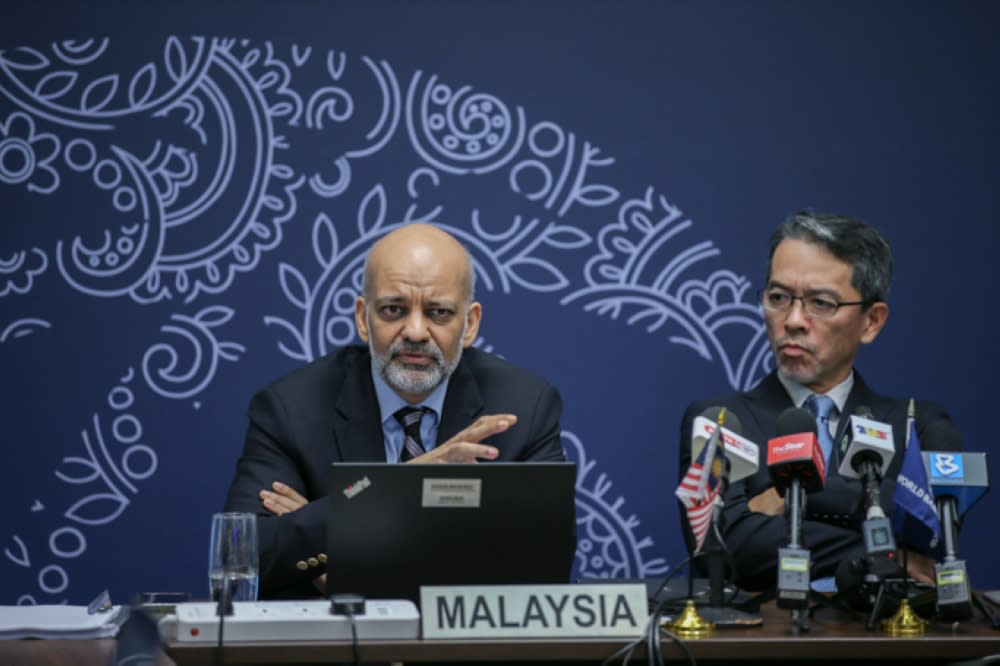World Bank urges Malaysia to set annual revenue objective amid declining tax collection trend

KUALA LUMPUR, April 22 — The World Bank Group suggests that Malaysia establish an annual revenue objective to gauge its tax collection potential, given the country’s declining revenue trend over recent years.
In its Malaysia Economic Monitor report for 2023 launched today, the group said the government is looking at lower revenue this year due to a decrease in petroleum-related investments income.
The federal government’s revenue is projected to decline to 15.6 per cent of GDP this year compared to 17.3 per cent in 2023, mainly due to lower investment income under non-tax revenue collection.
Specifically the government anticipates lower dividends from Petronas even though its assumption for global oil prices is slightly higher for 2024 at US$85 (RM406) compared to US$82.5 (RM395) per barrel in 2023.
“Malaysia has always under collected taxes, they need to raise more but how much more, 15 or 20 per cent? If you don’t set a target then you don’t know where you’re going so it’s important to know where you’re going,” said Apurva Sanghi, the World Bank’s lead economist for Malaysia.
“The government has introduced some revenue raising measures such as prosperity tax, personal income tax, increased SST and capital gains taxes among others. While these measures show some positive signs to improve tax collection they remain insufficient.
“What’s missing is the announcement of a concrete revenue target. So currently the tax to GDP target is 12.6 per cent but what should the target be? Should it be 15 or 20 per cent?
“Fifteen per cent is what we used to collect on average between 2000-2015. This can be a good benchmark to aim for to go back to what Malaysia use to collect or if we want to be ambitious we can go up to 20 per cent which is the average collection of upper middle class income countries and Malaysia is definitely part of that club,” he added.
Apurva added that tax revenue collection is expected to be at 12.3 per cent of GDP in 2024, a 0.3 per cent decrease from 2023 due to the government’s introduction of the capital gains tax where 10 per cent on net gains of the disposal of unlisted shares for companies as well as a higher service tax rate for selected services with a broader scope.
“While these measures show positive signs of the government’s efforts to enhance tax collection, they are still insufficient at addressing the revenue inadequacy arising from growing tax gaps in Malaysia,” he said.
Apart from that the group also said the government’s spending on subsidies could also be on the decline this year.
It said that the government’s expenditure is estimated to increase but the spending on subsidies will decline. For 2024 the it forecasted that subsidy spending will decline due to the planned implementation of targeted subsidies and efficiency improvement in the delivery of social assistance programs through Central Database Hub (Padu) system.
“Subsidies and social assistance spending are expected to decline to 2.7 per cent of GDP in 2024 compared to 3.9 per cent in 2023, mainly from lower fuel subsidies. Padu will enable the government to improve spending efficiency.
“However the government has yet to finalise the modality of targeted subsidies such as the eligibility threshold, the amount of fuel subsidies per person and how the subsidy will be disbursed,” said Apurva.



